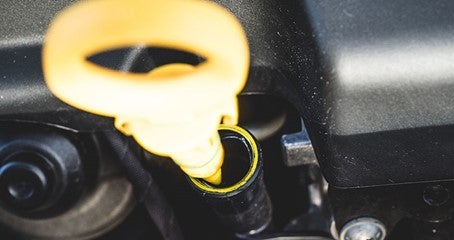Do gasoline and diesel passenger cars need different engine oils?

Picture two cars: one runs on gasoline, the other on diesel. Are the recommended motor oils the same as well, then? In case you’ve wondered about it, you’re not the only one. Let’s clarify this issue.
ACEA, the European Automobile Manufacturers' Association, classifies engine oils with a code, e.g. ACEA A3 or B4. ACEA specifications on a bottle or drum label always refer to use with gasoline and diesel engines. In this example, the ‘A’ is referring to passenger car gasoline engines and the ‘B’ to diesel ones.
The same goes for the API (American Petroleum Institute) specifications. The API SN/CF specification on a bottle indicates it is fit for both gasoline (SN) and diesel (CF) engines, no matter the required viscosity.
The answer to the question above, then, is no. Engine specifications do discriminate between gasoline and diesel types, with specific engine codes for both. Lubricants mostly have specifications on labels indicating they can be used for both engine types.
Why is this? Well, gasoline and diesel engine oils have the same anatomy or make-up. They are formulated from the blending of base oils and additives to achieve a set of desired performance characteristics for both applications.
The differences between them aren’t big enough to demand different lubricants. That’s why there is no need for both a gasoline and a diesel variant of a passenger car oil.
Summary:
- Passenger car ACEA specifications on today’s lubricant bottle labels always refer to use with gasoline and diesel engines.
- Engine specifications do discriminate between gasoline and diesel, but lubricants mostly have specifications which go for both.
- There is no need for both a gasoline and a diesel variant of a passenger car oil.